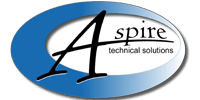From line of business applications to cloud-based email, most businesses rely on several different types of software to perform day-to-day operations. Rather than purchasing software and installing it directly to in-house hardware, software as a service is a cloud-based way to access the app and programs your business needs, via the internet. Since most SaaS applications can be accessed through a web browser or thin-client terminals, it reduces the costs associated with hardware and maintenance, as well as allowing for easy scalability as the company dynamics change. With SaaS, the user no longer needs to manually implement patches and security updates, as they are performed by the distributor.
Here’s a look at how your peers have responded to SaaS adoption:
- Companies that use SaaS applications as part of their business model use an average of 16 SaaS applications.
- 86% of end users say SaaS applications help them succeed more than desktop alternatives.
- 94% of survey respondents reported significant benefits from adopting SaaS.
Although there are many areas within an organization that SaaS can benefit, these are four departments that can be enhanced by implementing SaaS:
Communications
With the popularity of unified communication and collaboration (UCC), SMBs have designated internal and external communications as a high priority. Generally comprised of virtual meeting rooms, email integrations, VoIP phone solutions, and instant messaging, cloud-based applications can be used to build a custom UCC solution that match your company’s needs – with a lot more flexibility than on premise software.
Cloud-Based Email
For those businesses who aren’t interested in UCC, cloud-based email can be extremely beneficial for SMBs in its own right. Since emails are the primary records of correspondence for the majority of business communications, cloud-based applications allow emails to be stored and archived without taking up any internal memory, as well as, offering different options based on business needs. Gmail and Microsoft Outlook are two of the most popular cloud-based email platforms.
Productivity Suites
When it comes to SaaS, productivity suites are arguably the most popular application used by businesses together. As more businesses are allowing employees to work from home, the ability to use productivity applications and collaborate remotely is a very desirable feature. Microsoft Office 365, Google’s G-Suite, and Adobe Creative Cloud give users all the capabilities of locally installed software but are able to be accessed securely from anywhere that has the Internet, on nearly every device. Additionally, each suite can be bought in a group or as individual programs.
Virtualization
Another good aspect of SaaS is that adopting virtualization doesn’t have to be all or nothing in terms of which programs you’re shifting to the cloud. You have the ability to gradually replace your locally installed programs with cloud-based software at your own pace. Studies suggest, however, that once they begin adopting cloud-based software for one process, SMBs are likely to seek out additional SaaS programs that might be a fit.
At Aspire, we specialize in helping businesses develop an IT strategy that maximizes productivity and efficiency – including identification of potential SaaS applications that will improve your business, security, efficiency, or productivity. Would you like to learn more about SaaS? Contact Aspire today at: (469) 7-ASPIRE.




